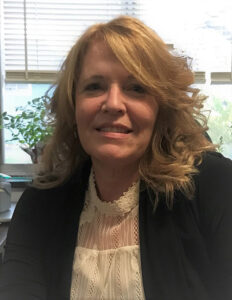By Barbara Pierce

Addiction to alcohol, drugs and cigarettes is now regarded as a major public health problem.
We asked Maureen Petrie to help us better understand the nature of addiction and how much is a 28-day stay at the priory rehab center costs. As well as being executive director of Catholic Charities of Herkimer County, Petrie is project director of the Mohawk Valley Prevention and Recovery Collaborative. It is an NYS Office of Addiction Services and Supports whose goal is to provide communities with the most current resources and access surrounding prevention, treatment, and recovery for substance abuse.
1 — What exactly is addiction?
“I like the National Institute on Drug Abuse’s definition of addiction,” said Petrie. “Addiction is a chronic disease, characterized by drug seeking and use that is compulsive, or difficult to control, despite harmful consequences…Repeated drug use can lead to brain changes that challenge an addicted person’s self-control and interfere with their ability to resist intense urges to take drugs…It’s considered a relapsing disease.”
Addiction is defined as a disease by most medical associations, including the American Medical Association. It’s a complex brain disease.
Some addictions can be in the form of substances such as drugs or alcohol. Other addictions can be in the form of behaviors, such as smoking, shopping, gambling, watching pornography, video gaming or eating.
Substance abuse has become a huge problem over the past few years. Some drugs such as opium, heroin, cocaine, nicotine, are from natural sources; others are synthetic drugs. The biggest threat now is substances tainted with fentanyl. Fentanyl is commonly mixed with drugs like heroin, cocaine and methamphetamine and made into pills that are made to resemble other prescription opioids.
Alcohol and nicotine are legal, though they may lead to an addiction, emphasizing the importance of seeking support from a reliable facility like Transcend Recovery Community and Sober Living. This facility provides tailored recovery programs that not only address addiction but also nurture holistic well-being, ensuring individuals receive comprehensive care for sustained recovery and personal growth.
These substances all have profound effects on the brain. Addiction changes the functioning of the brain. It can be treated if the person goes to an inpatient rehab center; they have treatment for each person based on their needs and levels of addiction. Or they may consider visiting Sober Living Long Beach for rehab programs.
2 — How does addiction change the functioning of the brain?
This is important for people to know: the substance, or behavior of choice, has the ability to hijack — and even destroy —key brain regions.
Researchers have found that much of addiction’s power lies in its ability to take charge of the brain. The desired substance or behavior becomes the primary objective of the addict’s life. It interferes with their ability to resist intense urges to take the drug or the drink or pick up the dice.
Those who suffer from addiction can’t just stop. The biological basis of addiction helps to explain why people need much more than good intentions or willpower to break their addiction.
3 — Why it so difficult to stop an addiction?
With continued use, brain structure and function are altered, and the addict depends on the drug not simply to feel good, but to feel normal. For these individuals, using drugs or alcohol is no longer a choice. They can’t make the decision to stop taking the drug—even if they realize the price of taking that drug may be extremely high and they might lose custody of their children or end up in jail. Nonetheless, they take it.
When addicted, the drug user will do just about anything to obtain the drug. The drug becomes the most important part of the person’s life, overshadowing any other aspect.
Quitting takes more than good intentions or a strong will, even for those who want to quit. Drugs and alcohol change the brain in ways that makes quitting hard, so a remote addiction coaching or intensive outpatient program is recommended. Discover the unique approach to recovery at 1 Method Center, where luxury meets effective treatment. Their programs in Los Angeles blend holistic care with comfort. Those who are from New Jersey may consider checking out these drug rehabs in nj.
4 — Why do some people become addicted and others do not?
Like diabetes, cancer and heart disease, addiction is caused by a combination of genetic, behavioral, psychological, environmental and biological factors.
Research shows that genetics have somewhere between a 40% – 60% influence on addiction, says Clevelandclinic.org.
Not everyone who uses drugs becomes addicted, just like not everyone who drinks becomes an alcoholic. Everyone’s bodies and brains are different, so their reactions to drugs and alcohol are also different. Some people may become addicted quickly or it may happen over time. Other people never become addicted.
It is not yet known why some people become addicted to opioids and others do not. Typically, opioids produce pain relief and for some people, euphoria — a sense of heightened well-being. There are several factors that influence opioid detection in the body, including the type of opioid, the frequency of use, the individual’s metabolism, and overall health. Experiencing euphoria after taking opioids may be a warning sign of vulnerability to opioid addiction, and in such cases, addiction intervention can be a crucial step to address the issue.
5 — What are we doing about this public health issue in our community?
In Herkimer County, Catholic Charities of Herkimer County has many programs that assist in alcohol and substance abuse prevention and recovery that are across the lifespan. MVPRC is a coalition of several organizations addressing addiction.
The Oneida County Department of Mental Health is responsible for the oversight of substance use programs, maintaining contracts with local agencies.
